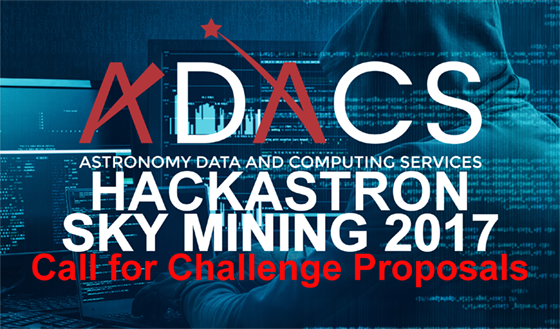ADACS Hackastron is public hackathon taking place from 3rd – 5th November at Curtin University, WA. At this event scientists, coders, technologists and enthusiasts from academia and industry are invited to come together to access Astronomy data and work with challenges Australian Astronomers face.
ADACS invites all Australian Astronomers to submit a challenge for Hackastron 2017 by completing the form by following the link below before the deadline of 18th October 2017. A panel will select the successful challenges which will be advertised on the ADACS website after the 23rd October.
Expected participants will include data scientists and computer programmers from many fields. The event runs over a weekend and participants will tackle real life astronomy challenges in collaboration with Australian Astronomers. Thus your challenge will need to have a demonstrable outcome within 48 hours.
Key Dates:
| Description | Date |
| Astronomy Challenge Submissions Open | 8th September 2017 |
| Astronomy Challenge Submissions Close | 18th October 2017 |
| Challenges Announced and Available Online | 23rd October 2017 |
| Registration Closes | 28th October 2017 |
| Hackastron, Sky Mining 2017 | 3rd-5th November 2017 |
Dates: Opening 3rd November at 6:30pm – Closing 5th November at 6:00pm AWST
Location: B410:101, Curtin University, Hayman Road, Perth, Western Australia 6102
Registration: https://www.eventbrite.com.au/e/hackastron-sky-mining-2017-tickets-37934847149
This workshop is sponsored by the Astronomy Data and Computing Services (ADACS) initiative. ADACS is funded under the Astronomy National Collaborative Research Infrastructure Strategy (NCRIS) Program via Astronomy Australia Ltd (AAL).
